 Petzlover
PetzloverIndian Pariah Dog is originated from India but Molossus is originated from Greece. Indian Pariah Dog may grow 12 cm / 4 inches shorter than Molossus. Indian Pariah Dog may weigh 25 kg / 55 pounds lesser than Molossus. Both Indian Pariah Dog and Molossus has almost same life span. Indian Pariah Dog may have less litter size than Molossus. Indian Pariah Dog requires Low Maintenance. But Molossus requires Moderate Maintenance
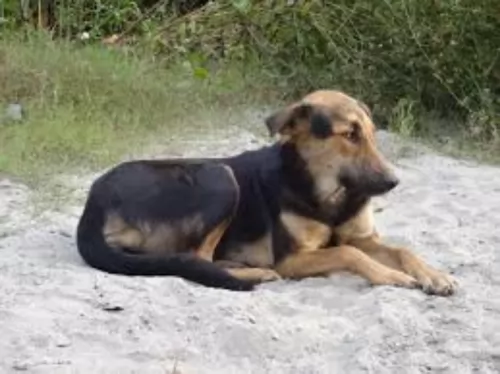 The Indian pariah, known also as the Indi-dog or In-dog, is an ancient dog breed common throughout India as well as Bangladesh.
The Indian pariah, known also as the Indi-dog or In-dog, is an ancient dog breed common throughout India as well as Bangladesh.
A breed standard does exist for the dog with the Indian Kennel Club and the dog has also been recognized by the Primitive and Aboriginal Dog Society.
A great dog enthusiast, Indian environmentalist, M Krishnan, has written about this ancient dog breed, telling about its wonderful temperament and its hardy constitution.
The Molossus has always been a popular dog and they have been around since ancient times. Mastiff type dogs are termed as Molossus.
Of course, when looking at the origin of the dog, there are many unsubstantiated claims about it. It has always been believed that the Molossus was a Mastiff-type dog, ferocious in battle. The Romans were dog breeders and recognized that the Molossus was a talented dog – good at guarding and herding.
Over the centuries the dog has changed but it is believed it was a Mastiff-type dog with a number of other breeds included in its origins such as the Rottweiler, Pug, Bulldog, Great Dane, Alano Espanol and Saint Bernard.
The Molossus isn’t a dog breed itself but rather a category that other dogs belong to. Today there are Molosser clubs and Molosser shows around the world.
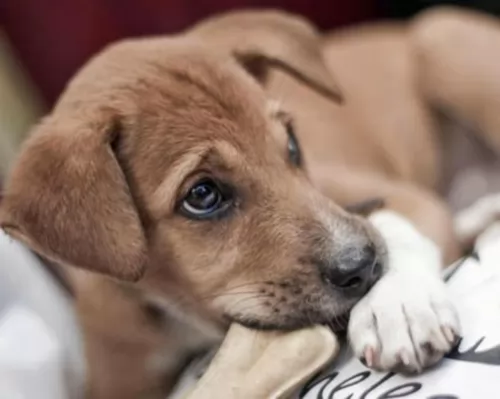 The Indian Pariah dog is a medium sized, lanky looking dog with the males and females standing at 46cm to 64cm in height and weighing roughly between 15 to 30kg.
The Indian Pariah dog is a medium sized, lanky looking dog with the males and females standing at 46cm to 64cm in height and weighing roughly between 15 to 30kg.
These dogs aren't big eaters so they tend to be lean and muscular. This is a double coated dog with the hair being coarse and fawn in colour or reddish brown.
He has fairly large, erect ears and brown eyes. He has a long tail which is held down but when he is excited it is held high and over the back, curling at the tip. There is sometimes white around the face and chest.
The Pariah dog is a social dog but he is somewhat timid, even though they make excellent watch dogs, being territorial around their human family. Being territorial, he can have an aggressive side to him so it is wise to have him trained and socialized as then he is obedient and capable of getting on well with children in the home.
These dogs are also very intelligent and therefore easily trained. He is an active dog and likes to be kept busy, wanting to be participating in the activities of his human family.
This Ancient dog breed from Greece has different descriptions of what it really looked like. It seems to have always been large to medium sized dog standing in the region of 50 to 76cm in height and weighing anything from 25 to 55kg.
The coat is mostly short and smooth and can be in a host of different colors. They are large boned dogs, solidly built with medium sized floppy ears, a short, thick neck, short, broad muzzle and a long tail which was later docked.
Molossers typically have heavy bones, pendant ears, and a relatively short and well-muscled neck, with a short, broad muzzle. These Molossers have always been used for a variety of jobs where strength, perseverance, speed and braveness are required. They have been used as rescue- and guard dogs, protecting livestock from predators.
The Molossus dogs all have the same kind of characteristics which have been bred into them. From their working days, they are known for their tremendous courage, taking on wild animals to protect their livestock.
They are territorial, wanting to protect their human family and home from intruders.They have also been bred to be loyal, loving family pets, and being highly affectionate, they want to be involved in the activities of the family.
This breed is gentle and loving, social and active and gets on well with other pets in the home as well as with children. They’re intelligent dogs and will need to be trained and socialized to ensure they are obedient and amicable with visitors to the home.
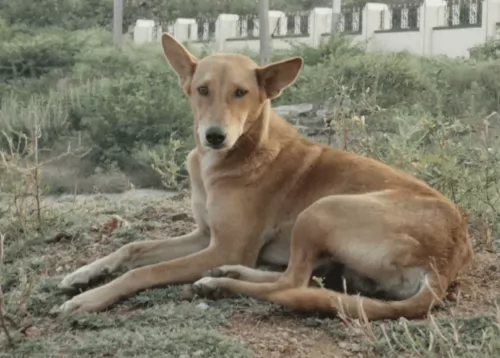 The Indian Pariah dog is just an ordinary dog looking to be a superb companion for you. These are dogs with no airs and graces and in fact they have lots of positive attributes about them.
The Indian Pariah dog is just an ordinary dog looking to be a superb companion for you. These are dogs with no airs and graces and in fact they have lots of positive attributes about them.
They are just your ordinary, social dogs who are able to form strong, loyal friendships with their human owners. He is a faithful dog breed and he has had a long association with humans dating back to thousands of years. He is healthy and cheerful and he is just waiting for you to give him a chance so that he can show you what a cheerful, playful, devoted, wonderful friend he can be to you too.
The Molossus, contrary to what many people think, isn’t a vicious dog, but rather a good natured dog that makes a wonderful family pet.
These dogs are known also for being hard working dogs with characteristics of bravery. They are dogs who may look fairly tough, but they are actually gentle, calm and sensitive. It’s a bad upbringing from the owners that gives any dog bad characteristics.
Train your Molossus, have him socialized and be a responsible and loving dog owner, and these dogs promise to make you a splendid family pet.
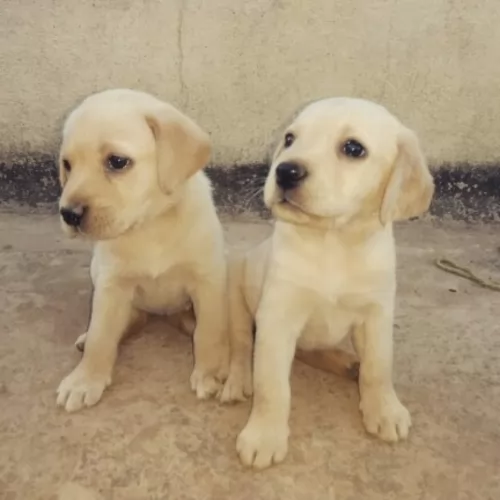 This is a dog which can live to between 13 and 15 years of age when he is treated well.
This is a dog which can live to between 13 and 15 years of age when he is treated well.
These Indian Pariahs are a natural dog breed, and to this end they are free of genetic health concerns such as hip dysplasia which is a very common ailment with nearly all dogs.
Remember that every dog stands a good chance of picking up some life-threatening illnesses if not vaccinated against them. Some of these diseases to be concerned about are canine distemper and parvo-virus. Rabies, kennel cough and parasites such as fleas and ticks can also pose a real danger to your pet.
The Pariah has been around for a very long time and today he is a robust, low maintenance pet that isn't going to cost you a lot of money .
These large dogs are particularly prone to health issues such as hip dysplasia, a genetic condition. A poor diet as well as environmental factors can contribute towards the disease too as well as rapid weight gain and obesity.
This disease develops because the dog’s hip joints haven’t developed properly. The hips then partially dislocate, and the dog has pain and battles to get around. If your dog shows signs of hip dysplasia, he will need to get to the vet to do a physical exam and come up with a treatment- and management program.
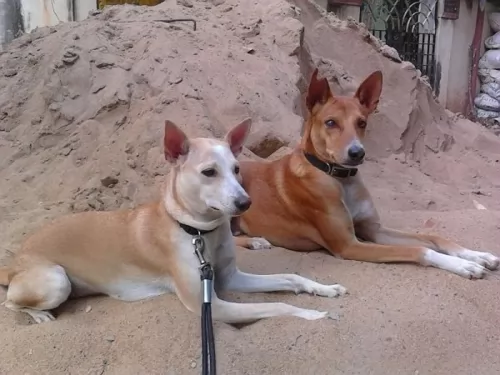 This is a low maintenance dog who also happens to shed little. A brush once or twice a week will be sufficient and it will keep the fur shiny and healthy.
This is a low maintenance dog who also happens to shed little. A brush once or twice a week will be sufficient and it will keep the fur shiny and healthy.
Your puppy will need to be vaccinated at 6 weeks of age. There are some veterinary clinics in India that offer free vaccine shots. Your puppy will be dewormed too. Make sure he has a nice dry, warm place to sleep, and for during the day, ensure that there is a shady spot for him too.
It's always a good idea to try and feed your puppy the best food there is. If you visit a veterinary clinic, find out what the most appropriate food would be for your puppy and how often you should feed him during the day.
If you feed your adult Indian Pariah dog kibble and you're able to, try and add in some home-made food too such as cooked chicken or rice. Some raw meat added in from time to time will also do your dog the world of good. Make sure there is always a bowl of cool, clean water standing by.
These dogs were bred to be working dogs and they have always spent their time outdoors performing a guarding or rescue role. Today they require a lot of exercise – walks and ball games – as they are dogs with a lot of energy.
Essentially a large breed, the Molossus will need a commercially manufactured food of high quality if you opt to make use of the convenience of these foods.
Make sure to choose one manufactured for large breeds and which is free of a host of bad ingredients such as corn, soy, wheat, dairy, artificial colors, sweeteners and preservatives.
You want dog food which is high in protein and fat. Try and include some home-cooked food such as boiled chicken, brown rice, pasta and vegetables. An ingredient to look out for in your dog’s food is omega-3 fatty acid to help keep the skin and coat shiny and healthy. Puppies particularly benefit from DHA, or Docosahexaenoic acid, a form of omega-3 fatty acid that is good for brain development.
Brushing the dog’s coat twice a week will be necessary to remove loose hairs, especially during the shedding period. When you brush him, check for ticks and fleas and speak to your vet about flea treatment if necessary. Ears and eyes should be checked and cleaned regularly.